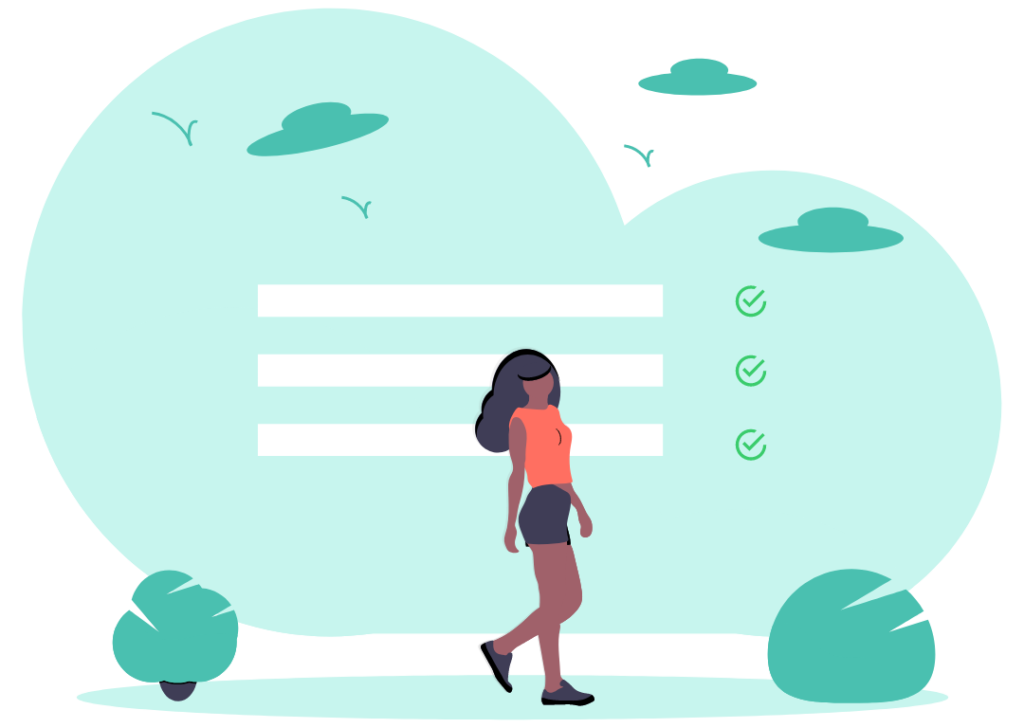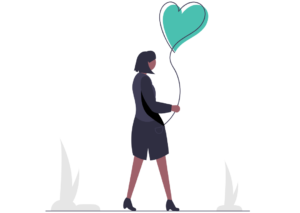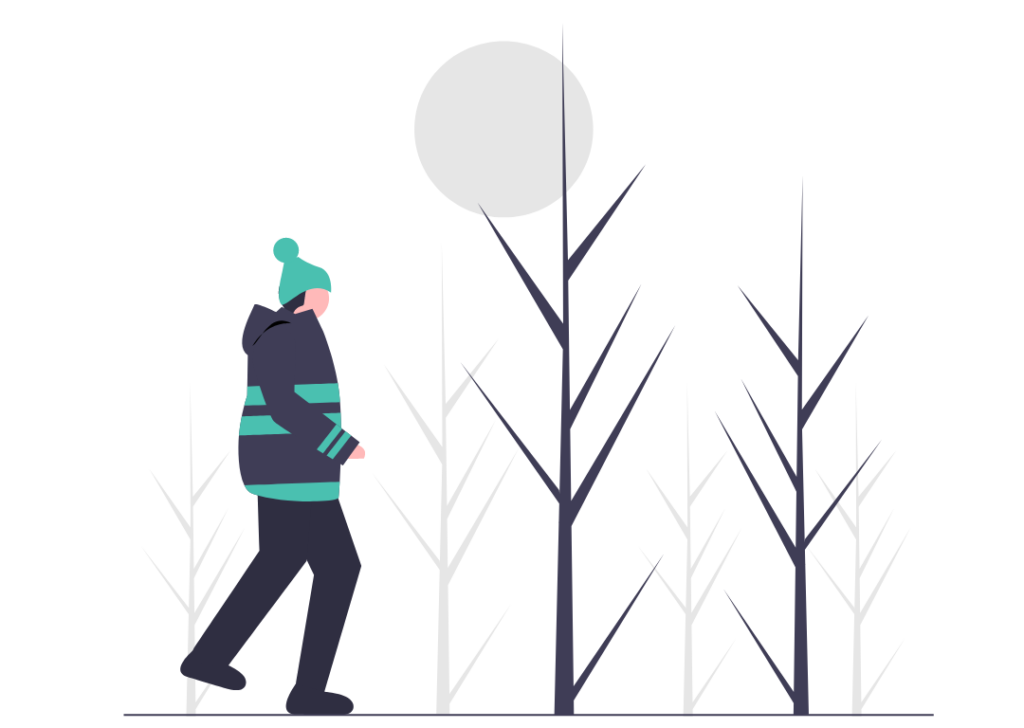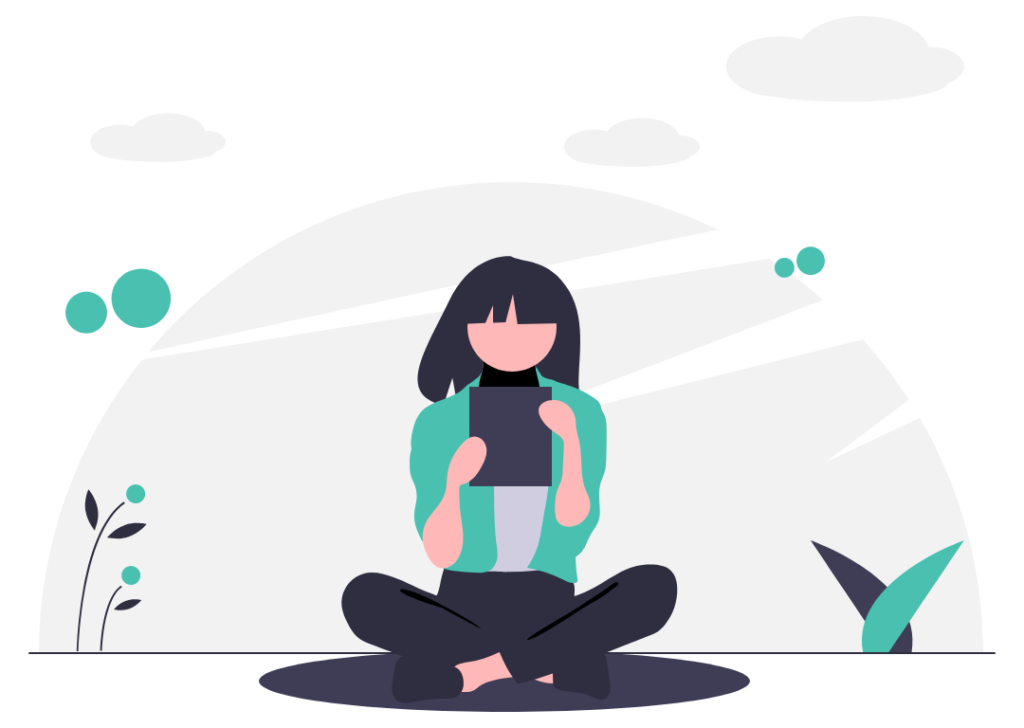
Keeping a Part of Myself Just for Me
As a child, Jill became her mother's primary caregiver after a stroke paralyzed her. She later cared for her father and older sister.

Klara was a few years out of college, living out of state from her family, when her seemingly healthy mom was diagnosed with a rare form of cancer beyond treatment. She recounts their last days together and alternating between crying, feeling numb, and feeling loving connection. She found strength by embracing that each day is different and by not putting pressure on herself to feel a certain way. This is Klara’s story.
As told to Open Caregiving and lightly edited to enhance readability while preserving the author’s voice.
Hi, my name is Klara. I’m a millennial woman from Illinois. I was a caregiver for my mom, who passed away recently from a rare form of cancer.
I was a few years out of college, living and working in a different state from my parents. My mom suddenly found out she had a very rare form of cancer and only a few weeks to live. I flew home the afternoon my parents got the MRI results and were discussing the possibility of chemotherapy. My mom chose hospice care the night that I arrived home because of the incredibly poor prognosis of her cancer, even with chemotherapy.
Due to the COVID-19 quarantine, my job allowed me to work from home indefinitely. Many coworkers were transitioning to remote work, and within a week or so of my arrival the entire office was remote. That was fortuitous, as I could stay home with my parents and care for my mom without the pressure of needing to return to my other life out of state.
It was immensely challenging to become a caregiver and watch my mom die while the rest of the world was in such tumult. There was, and still is, a lot of anxiety between my dad and I about losing each other due to COVID-19. We couldn’t handle the loss of another family member after losing my mom.
My mom and I grew very close in the last few years. We didn’t have the best relationship in high school (I blame myself for being a bratty teen girl!), but after I moved out for college we texted almost every day. We’d text about silly things, videos of dogs we thought were funny, cool photos we had taken and wanted to share, or small life updates. I was finally starting to enjoy our relationship in a deeper, more mature sense. A relationship built on mutual respect and love, rather than a traditional parent/child dynamic.
I am going to law school next year, and my mom was immensely supportive during my application process. She proofread all of my essays, helped me research the schools I was applying to, and cheered me up when I was feeling stressed and overwhelmed. My mom has always pushed me, but also trusted me to know what I needed best. She was such an advocate for me. We had planned to visit Cornell Law School together the afternoon she died, for an admitted students’ event. She was so excited for me, and I loved her excitement and her pride. I wanted to do right by her and continuously develop into the kind of person she taught me to be.
Watching her die was really, really hard. People say you become a child twice. Once when you’re young, and again when you’re old and dying. It’s hard when the person who is becoming a child is your parent, especially when they were outwardly the picture of health a few weeks before. My mom became like a child in a matter of days.
The first few days I was home we laughed and cried together, watched movies, took short walks, and visited with folks who wanted to say goodbye. She had loads of energy, almost manic, those first days. By the end of the first week, she was sleeping most of the day and constantly felt exhausted.
After 12 days, she couldn’t shower alone or walk without someone holding her hand. She looked like a skeleton. She wasn’t able to eat any food as the tumor expanded in her abdomen, and her skin just hung off her bones. It was painful to see someone so strong become so frail. I’d hear her whispering because she was too tired to speak at a normal volume. When I helped her walk to the bathroom, I felt like I was moving slowly next to a toddler who was still learning to walk and constantly at risk of falling.
On the 14th day, she slipped into a sort of coma. She could still hear us and respond a little, but her eyes were glassed over and she couldn’t speak.
She died in the afternoon, just 15 days after her diagnosis. It relieved me she was no longer suffering.
It was strange watching my mom prepare for her own death. She told me the specifics of how she wanted to be arranged after she died, what jewelry I could give to her friends and what I should keep, and what to tell people who didn’t know she was dying.
She stopped caring about a lot of things. I remember watching her go through emails and just hitting delete, delete, delete. It was like watching someone on their last day of work just cleaning off their desk and mentally checking out. Except for her, it was her entire life she was winding down. We didn’t get through a lot of what she wanted to do as she lost energy, but I marveled at her ability to let go of the stuff that didn’t matter anymore.
My ability to put my own needs aside. I was very vulnerable, volatile, and emotional myself, but I dropped everything I could to help my mom in her many needs towards the end. Writing emails for her, texting her friends with updates, doling out her medication and logging it. I wanted so badly for her to be able to let go when the time came and not feel like she needed to live longer because she was worried about me or my dad.
A lot of the stress and pain hit me in the days and weeks after she passed. It was like I had pushed it to the side while caring for her during her last days because I didn’t want her to feel like she needed to stay on Earth with us.
It was hard. One thing I did a lot, and would recommend to those in a similar situation, was prioritizing. I sat down and did the work I needed to get done each day and texted the people I most wanted to share in this experience and lean on. I didn’t make time for things and people that I didn’t have the wherewithal to make time for. Most people understood the situation, and it felt freeing to reduce my days down to the things that mattered most.
Reach out to others in a similar situation, whatever that is. I spoke to three of my friends who had suddenly lost a parent. The validation I got from them, feeling like I was seen and understood, was enormously helpful. Many people don’t know what to say or how to relate, so skip those conversations for when you can carve out space for them. Sometimes platitudes about life and loss are so draining to respond to.
Sometimes, it’s just about survival and making it through each minute, hour, day, week. Humans are remarkably resilient, and if you need to push yourself just to get through the day, parcel it out as best you can and remember that it will get easier (and then harder, and then easier again, sometimes).
And if you can, read someone else’s writing on whatever you’re experiencing. I am not generally into poetry, but some poems I read on death and dying felt exactly like someone outside swooping in and putting words to a sentiment I was experiencing but couldn’t articulate myself. It was quite cathartic.
Don’t put pressure on yourself to do or feel the right thing. Self-guilt is not helpful, especially in circumstances like these. Sometimes you just want to do very little in the hours or minutes in which you’re not actively caring for someone, and just wallow and scroll on your phone and feel nothing. Sometimes you’ll be enormously productive and accomplish more than you thought possible.
Each day is different, and accept how it is for you without self-judgement or pressure. It is okay to cry. It is okay to feel love and connection for everyone who has ever gone through what you are living through. It is okay to feel numb. It is also okay to oscillate between the three at remarkable speeds. Emotions are strange. Don’t forget to feed yourself, and sleep and shower when you can.
If you can talk through your thoughts or journal or make art or capture a bit of the experience you are having, do so. Caring for another human is a big deal, in whatever form it takes. Try to process and make a record of it so you can learn from it and remember it in the future when you need to.

As a child, Jill became her mother's primary caregiver after a stroke paralyzed her. She later cared for her father and older sister.

Sawyer was living with in Vermont his wife and two toddlers when his dad was diagnosed with lung cancer.

Rose and her husband were about to start the business of their dreams when her mom was diagnosed with stage IV cancer.